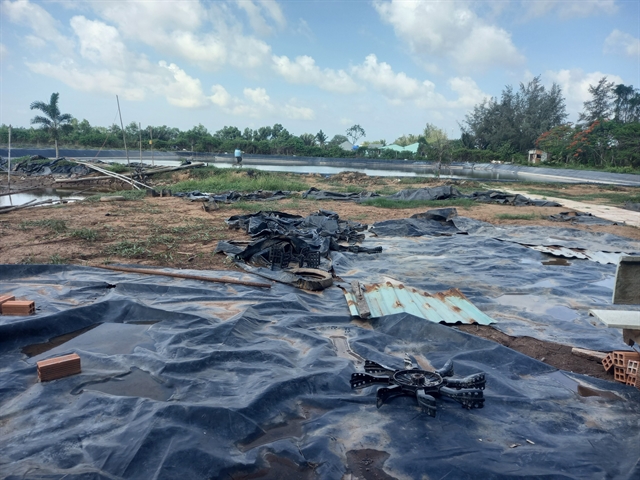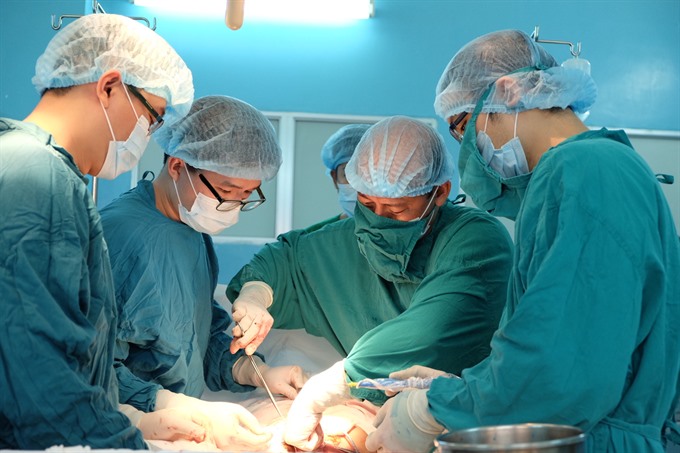

" />Many hospitals and clinics in Việt Nam are taking measures to prevent and reduce the number of hospital-acquired infections.
 |
| A surgery being performed at Bình Dân Hospital. Hospitals in Việt Nam are taking measures to reduce the number of surgical site infections. — Photo courtesy of Bình Dân Hospital |
HCM CITY— Many hospitals and clinics in Việt Nam are taking measures to prevent and reduce the number of hospital-acquired infections.
Bình Dân Hospital in HCM City, for instance, carries out surveillance and prevention strictly as it performs an average of 150 surgeries a day, Dr Nguyễn Phúc Cẩm Hoàng, the hospital’s deputy director, said at a conference on surgical site infections held on Friday in the city.
The hospital’s department for surveillance and monitoring of hospital-acquired infections also works with its anesthesiology and recovery department to ensure safety in surgeries.
“Hospital-acquired infections are one of the challenges for the health sector in developing countries,” Hoàng said, adding that infections increase complications, risks of mortality, length of stay, and medical costs.
According to the World Health Organisation (WHO), surgical site infections are caused by bacteria that enter through incisions during surgery.
They threaten the lives of millions of patients each year and contribute to the spread of antibiotic resistance. In low- and middle-income countries, 11 per cent of patients who undergo surgery are infected during the process.
But surgical site infections are not just a problem for poor countries. In the US, they contribute to patients spending a total of more than 400,000 extra days in hospitals at a cost of an additional US$10 billion per year.
Dr Lê Thị Anh Thư, head of Chợ Rẫy Hospital’s infection control department and chairwoman of the HCM City Infection Control Society, said that a survey by the Ministry of Health found that surgical wound infections were the second-most common type of hospital-acquired infections in Việt Nam.
At Chợ Rẫy Hospital, the rate of surgical wound infections accounted for 1.24 per cent of the total of hospital-acquired infections last year, according to Thư.
Forty per cent to 60 per cent of surgical wound infections are preventable if regulations about “super clean” operation theatres and disinfected devices for surgeries are closely followed.
Dr Nguyễn Thị Thanh Hà of Phạm Ngọc Thạch University of Medicine said that facilities within hospitals where surgical operations occur are performed in a sterile environment.
Hospitals should set up a central sterilisation division to oversee the prevention of hospital-acquired infections, and operating teams should follow World Health Organisation (WHO) safe surgery guidelines to help reduce surgical infections, according to Hà.
According to WHO, its guidelines are valid for any country and suitable to local adaptations, and take account of the strength of available scientific evidence, the cost and resource implications, and patient values and preferences.
Bình Dân Hospital held the conference in co-operation with the HCM City Infection Control Society. — VNS









